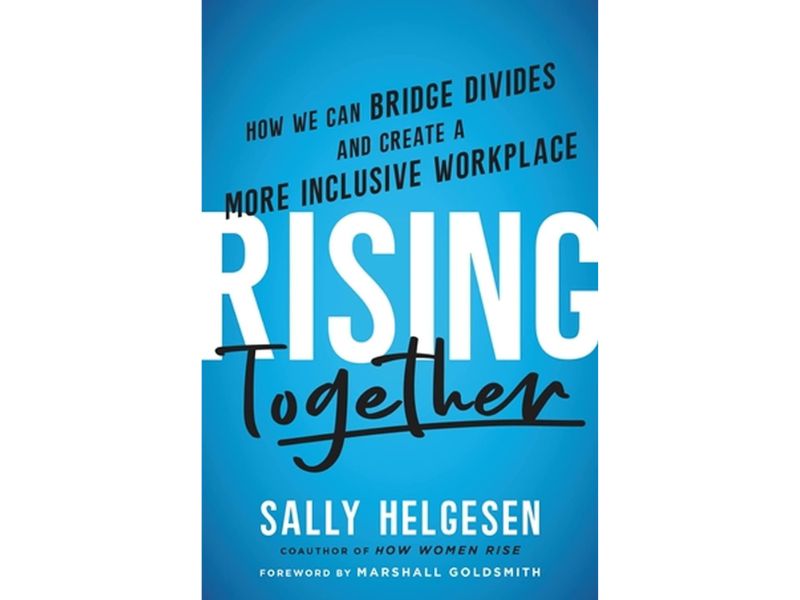You could be forgiven for thinking ‘ageism’ has been well and truly buried in our organisations. After all, in the UK we’ve abolished the mandatory retirement age, increased the state pension age and introduced age discrimination legislation. But despite these policies declaring war on ageism, it is still pretty brutal for anyone to age in the workplace.
For example, creative career paths are geared toward young apprentices and graduates; posters favour the ‘fit and healthy’ (i.e. younger workers) and training schemes for the middle-aged are either non-existent or focused on your retirement plans. The language of ageism is casually written across the business literature, with apocalyptic branding including the ‘silver tsunami’ or the ‘demographic time bomb’. The message is clear – if you’re getting older, you’re on the way down, not up.
The silent revolution
So, I hear you shout, how come the top of our organisations are full to the brim of white, middle-aged men? Ha! And here we come to the notion of ‘gendered ageism’. Marry older age with being female and the situation is particularly corrosive, the so-called ‘double whammy’ of ageism + sexism, with middle-aged women struggling to prove their relevance. According to statistics from the AARP (America’s largest non-profit organisation dedicated to researching the lives of the over 50), 64% of women say they have been the target of or witnessed, age discrimination. Yet only 3% of older women have ever made a complaint to a supervisor, human resource person, another organisation or government agency. And my research echoed these findings. Essentially, there’s a tribe of older women in the workplace who have been marginalised, passed over or pushed out due to gendered ageism. And the worst thing is, this is happening silently, with very little outcry.
From silver fox to silver vixen?
Whilst the older male body is linked with fine wines, eligible bachelors, or silver foxes, all kinds of sexy and interesting, the best the older woman can hope for is to be labelled a cougar. More likely, the older woman is labelled a hag, crone, harridan, mutton, old bag, witch, bint, battle-axe, frump, matron, spinster. Indeed, I’m struggling to think of a single respectful word to describe a woman over 50.
And if these seem like isolated words, or ‘not in my workplace’, the illustrations of pejorative language used in the workplace towards the people I researched during my doctoral studies might give you pause for thought. Littered with sexist and ageist overtones, the women had been called all sorts of names from “blocker… also ran… older bird… old biddy” through to “frigid old cow… older aunt… throwback… fuddy-duddy”. Lori, a 50-year-old talent director I talked to, described an example of a recent interview process where the language and image of the older woman influenced the hiring process: “We were hiring an HR director into one of our business lines and there was an internal candidate, who was a woman, 50 years old. Everyone could see that she’d be good at the job, but the discussion was: ‘She’ll be a blocker’; ‘this will be her last gig’, and ‘we’re not elevating the game through putting her in it’. So, we went outside, and we hired a guy who was one year younger, 49.”
#notdoneyet
Calling out gendered ageism is not just a moral argument. Sure, we need to call out all forms of destructive exclusion in the workplace, but there is also an economic argument here. Losing our middle-aged women from the workplace means we lose their talent, maturity, wisdom, and experience. Younger generations want older positive role models that provide inspiration and aspiration, and we squander the opportunity to achieve gender parity at the top of our organisations. Little wonder that female entrepreneurship is booming as older women ‘revolt’ against existing workplace norms, contributing some £85 billion to the UK economy in a different way. Astonishingly, older women have a 70% chance of making it through the first five years of starting a new business(as opposed to 28% of younger entrepreneurs), due to their energy, knowledge, and experience. Their gain, you could say, is the workplace’s loss!
About the author
Dr Lucy Ryan is a leadership coach, consultant, and passionate advocate for women’s professional development. She is the author of RevoltingWomen: Why midlife women are walking out and what to do about it.

Read more of our articles here.









